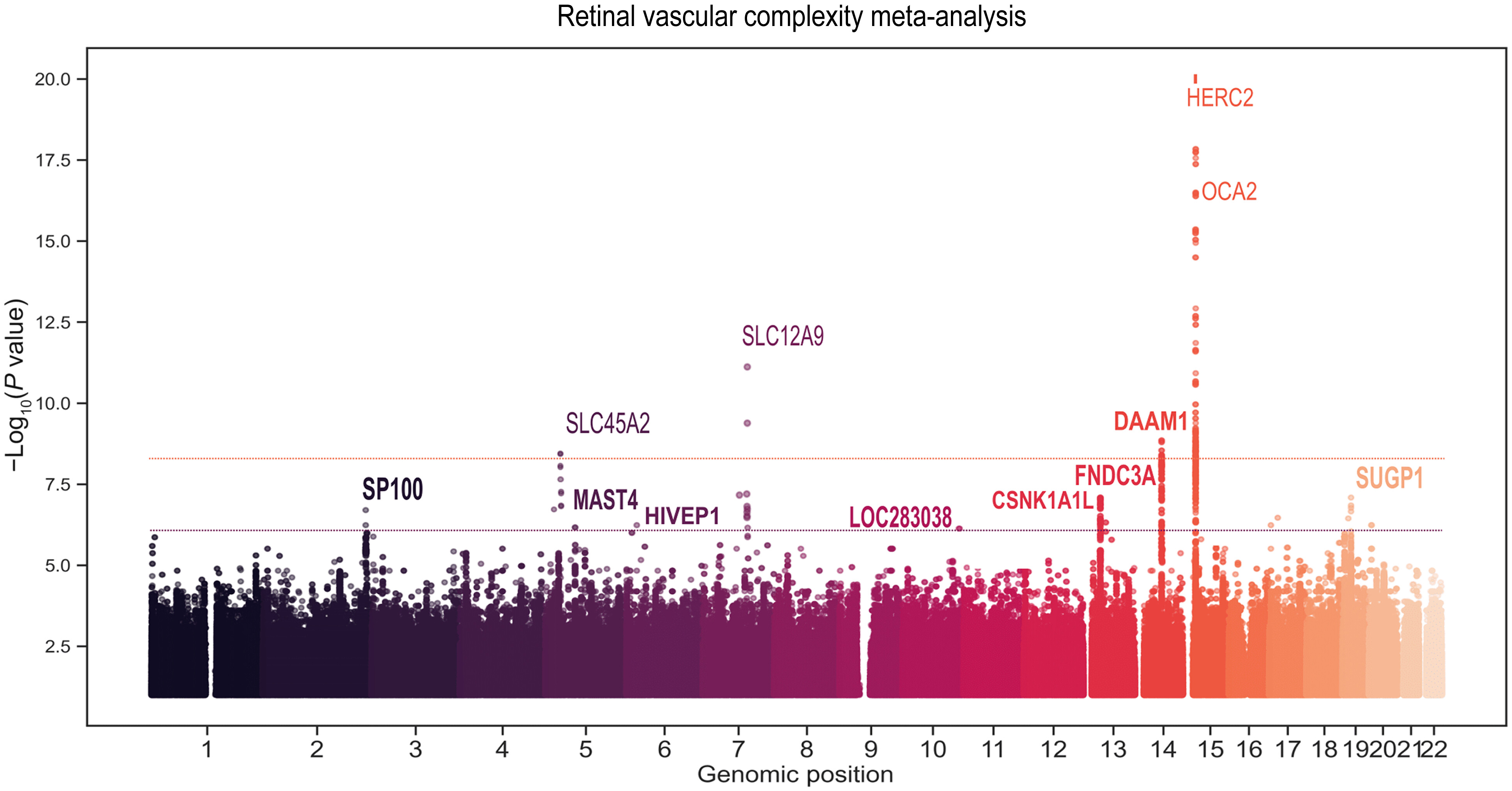A simple eye scan could be used to check for signs of heart disease risk and biological aging, a new study shows – potentially allowing health issues to be spotted and treated earlier.
The work of a team from the UK and Canada is the latest evidence in a growing body of research showing that our eyes carry signals about our general health and well-being.
In this case, it's tiny blood vessels at the back of our peepers that hint at overall vascular health. The researchers were also able to identify proteins that appear to drive some changes, which could be targeted by treatments in the future.
"The eye provides a unique, non-invasive view into the body's circulatory system," says geneticist Marie Pigeyre, from McMaster University in Canada.
"Changes in the retinal blood vessels often mirror changes occurring throughout the body's small vessels."
Related: Parkinson's Could Be Caught Early by a Simple Eye Test
While previous studies have found connections between the complexity of blood vessels in the retina and overall heart health, here the researchers wanted to take a closer look at what could be behind these associations.
 The researchers analyzed genetic variants linked to the complexity of blood vessels in the eyes. (Villaplana-Velasco et al., Sci. Adv., 2025)
The researchers analyzed genetic variants linked to the complexity of blood vessels in the eyes. (Villaplana-Velasco et al., Sci. Adv., 2025)They analyzed eye scans and genetic data from 74,434 volunteers, finding that people with simpler, less branched blood vessels in their eyes also had a higher genetic risk of cardiovascular disease.
This was shown through a technique called Mendelian randomization – using genetic variants (in this case for cardiovascular disease risk) in place of the actual health issue.
As genetics are fixed, it means that the complexity (or fractal dimension) of these blood vessels isn't just seen alongside higher rates of biological aging and a higher risk of heart disease; it's probably driven by the same processes.

Using data from a separate cohort, the team also identified certain proteins – primarily MMP12 and IgG–Fc receptor IIb – that appear to influence inflammation and affect both blood vessels and vascular health. Those proteins could eventually be used as a basis for preventative treatments.
"By connecting retinal scans, genetics, and blood biomarkers, we have uncovered molecular pathways that help explain how aging affects the vascular system," says Pigeyre.
Some fairly complicated and lengthy tests are currently needed to properly assess the risk of age-related conditions such as heart disease, stroke, and dementia. If an eye scan can do the same job, more people could be assessed more easily, and earlier in life.
Although the idea of eye scans as early warning signs for these health problems isn't completely new, this latest study means there's stronger scientific evidence – and a better understanding of why they would work.
Being able to target these underlying proteins and inflammation triggers before serious problems develop would be a huge positive for an aging population – and could help ensure a better chance of being healthier in old age.
"Our findings point to potential drug targets for slowing vascular aging, reducing the burden of cardiovascular diseases, and ultimately improving lifespan," says Pigeyre.
The research has been published in Science Advances.

.jpg) 2 hours ago
3
2 hours ago
3

 English (US)
English (US)